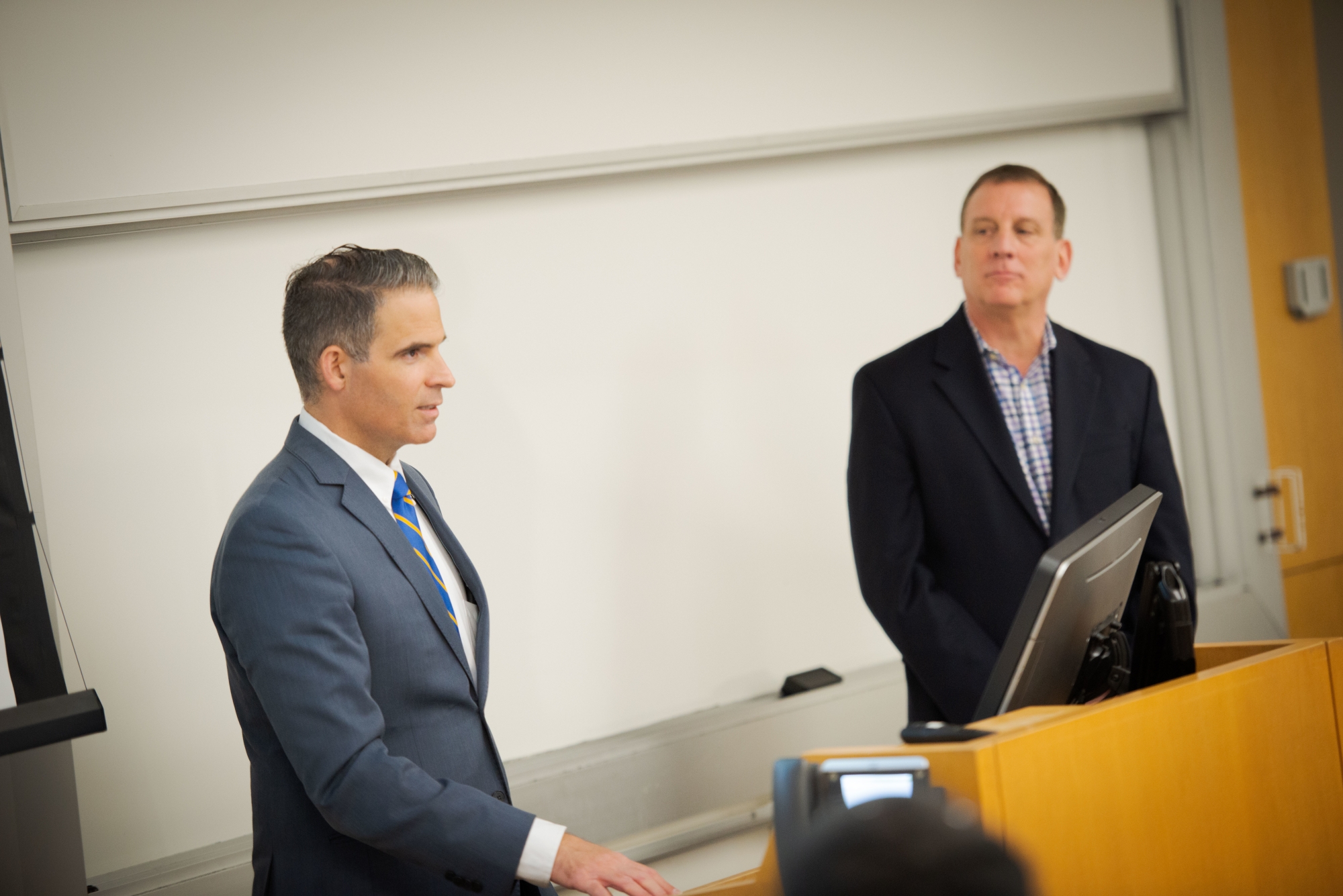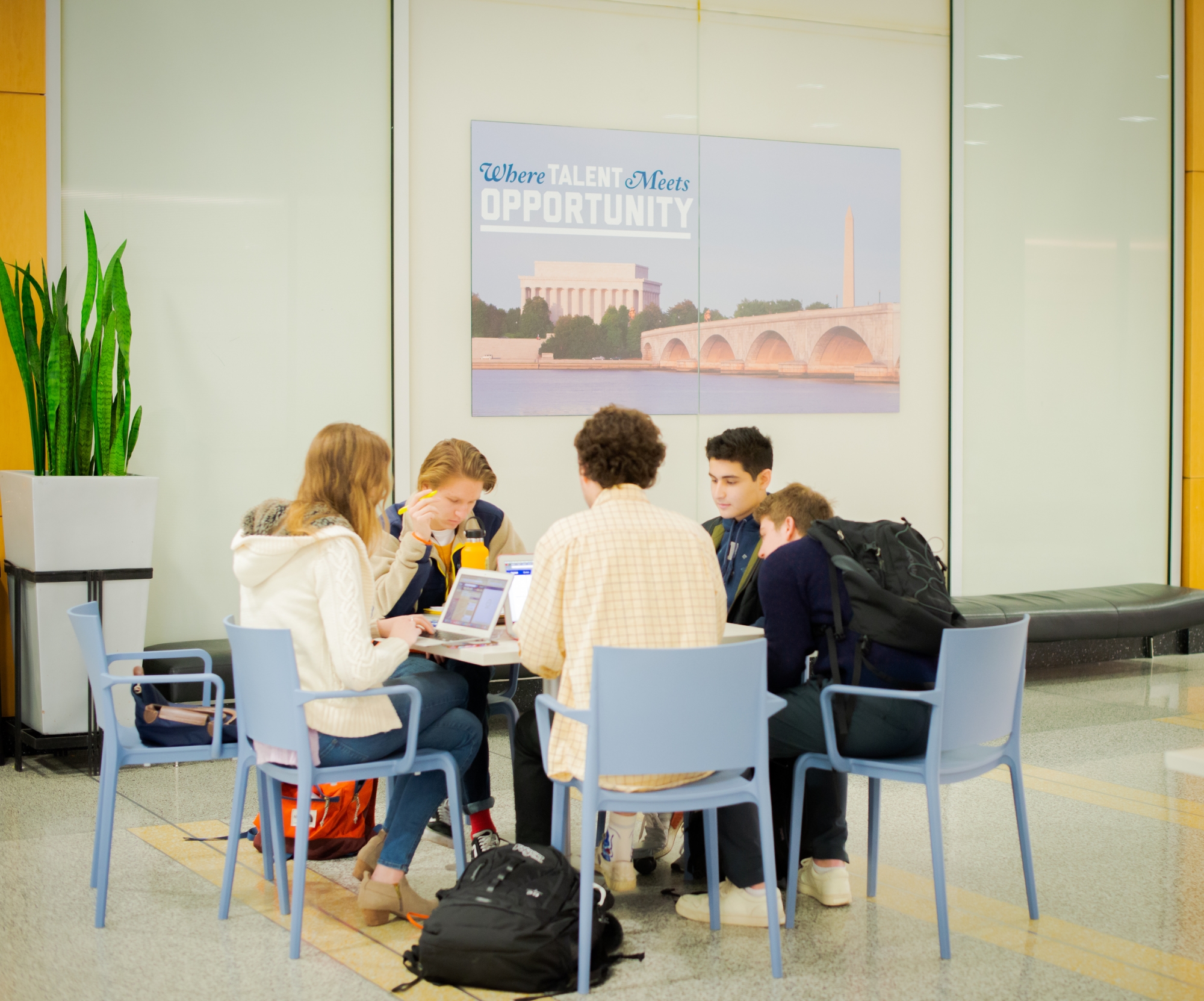Innovation
RE-IMAGINING BUSINESS EDUCATION
The George Washington University School of Business (GWSB) built its infrastructure for resiliency. The efficacy of the school’s response to the pandemic not only proved the integrity of that structure and its systems, but it was also validated by an ongoing rise in the school’s rankings. GWSB is ranked among the top business schools in the world.
GWSB is No. 1 in the United States for international business education and No. 2 among Master's in Finance pre-experience programs in the country. Fortune Education ranks GWSB No. 14 among online MBAs. U.S. News & World Report places GWSB among the Top 20 schools in five online education categories, including No. 10 in the country for online finance MBAs.
“We are agile. We built on the track record of our high-quality Online MBA and our institutional expertise and support to transition faculty, students and staff to virtual platforms and remain on track with learning, teaching, research and institutional resilience,” said Dean Anuj Mehrotra.
More than four years ago, the school took the design of its Online MBA program in house. In 2019, it began offering certificates via virtual platforms. Those investments in instructional design and the school’s experience in online learning, in handling virtual exams, and in maintaining academic integrity on e-platforms continues to pay off post-pandemic.
“We didn’t have to pivot. We were already there,” said Susan Copp, director of the Office of Instructional Design at GWSB.
The flexibility offered by already-in-place curriculum changes brought a rise in enrollment. The school had revamped its 27 graduate certificates as stand-alone or as credentials stacked atop degrees, and 10 certificate programs were taught online even before the pandemic. The certificates, which allowed people to gain skills in less time and with less investment than a degree program, became sought-after when the pandemic made the job market tight.
“If they weren’t working, people took advantage of the time to study, to upskill and reskill,” said Vice Dean for Strategy Liesl Riddle, an associate professor of international business and international affairs.
The school also saw demand for its 31 offerings within the 4+1 Program, a combined degree initiative that allows students to complete both a bachelor’s and master’s degree in five years. And the new Master of Science in International Business and the Master of Science in Management targeted students right out of undergraduate studies, permitting them to study full or part time. To encourage students in the Class of 2020 and Class of 2021 to continue straight into master’s degree or certificate programs, a new Grants for Grads program funded up to 50 percent of tuition.
“We know those undergraduates faced unprecedented challenges with the pandemic and an uncertain job market,” said Dean Anuj Mehrotra. “This was an opportunity to recognize that and support our students.”
In other forward-looking changes, the Fall 2020 semester saw the launch of a STEM designation for students in the Global MBA and Accelerated MBA programs. At least 50 percent of the courses in the curriculum are STEM-designated. The GW School of Business developed the STEM-designated track based on feedback from students and from employers seeking job candidates with advanced knowledge of business management through technology.
The new programs built on the school’s position of strength, its experience in online teaching, and its agility with in-house instructional design. Copp’s team not only took a forward-looking position in determining courses, degree programs, and new certificates, but it also considered the needs of all students. That meant thinking about, among other things, the technology requirements of students with disabilities and international students.
“We are a global classroom, and the technology needs in one country may differ from the technology needs in another country. We also had to consider time differences around the world and how we could support students that might need help at, say, 2:00 a.m. our time,” Copp said. “We made it accessible to all students and familiar to all students and faculty. When they went from one course to another, the syllabi were online, everything looked similar and familiar.”
Faculty cross-pollinated the lessons they learned, shared best-in-practice strategies, reached across the university for course-design ideas, and set up rigorous assessments linked to learning objectives. As evidence of their agility and expertise as educators, GWSB faculty were recipients of a number of teaching awards and honors.




